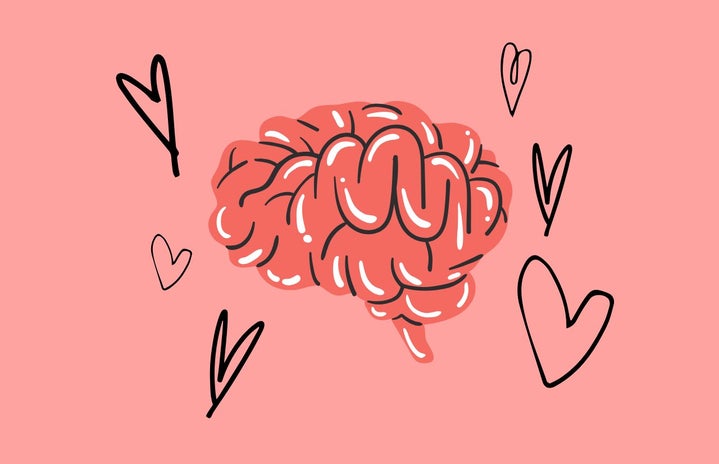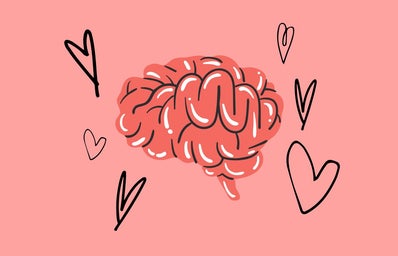The middle of the semester is when many students, including myself, find themselves overwhelmed, exhausted and ready to quit. This lovely phenomenon is defined today as “burnout”, which is when extreme stress over a long period of time can cause mental, emotional and even physical fatigue. Burnout was previously used for the workplace, but it has since expanded to include school, personal life and any stressors that induce uncontrollable stress. This state of being isn’t fun and it can lead to some pretty serious long-term problems if not dealt with. Stress has a lot of effects on our physical well-being, so it’s important to develop ways to manage stress in our bodies. In this article, I will outline some of the science behind burnout and stress, ways to identify burnout and methods to overcome it.
Our bodies have evolved a lot, but we still have some of the basic primal responses that help us stay alive. One of these functions is what is known as the “fight, flight or freeze” response when we are presented with some sort of threat or stressor. Dr. Emily Nagoski, author of Burnout: The Secret to Unlocking the Stress Cycle, talks about this reflex and the stress cycle that comes with it when we are exposed to any kind of threat. We perceive a threat, we react to it and then finally our body gets the signal that we are safe. This cycle is designed to be effective, however many people get caught in the “reacting to the stress” stage instead of fully dealing with it. This is when prolonged stress turns into burnout.
Now, one can rest and regain their energy and go right back into whatever it is that’s causing them this stress–whether that be work, school, etc–but this cycle of burning out and recharging is not sustainable either. The part of your brain that deals with stress and possible threats are the amygdala. The more stressed you are, the stronger and larger your amygdala becomes. This isn’t a good thing, because the stronger your amygdala gets, the more it looks for potential threats. So, when a person is constantly going through this cycle of stress, they are essentially conditioning their brain to look for the negative. This can sometimes lead to depression or anxiety, and burnout is often the step before some of these mental illnesses. It’s important to recognize when you are getting to this point and take steps to reduce your stress before it becomes too much.
Burnout is sometimes confused with being overly stressed out, so it’s hard to realize when you’re in it. Dr. Laurie Santos from Yale University talks about the three stages of burnout and some of the symptoms that come with it. The first stage is “emotional exhaustion”. Pretty self-explanatory but this comes with feeling drained–all the time–mentally, emotionally and physically. Symptoms that can come with this stage include lack of concentration, changes in eating and sleeping habits, loss of motivation and procrastination. The second stage is “depersonalization”. This can look like feeling detached from yourself, the people closest to you, or even from your life in general. This can cause some to become more irritable with others and more cynical of the world or people in their life. The last stage is a “reduced sense of personal accomplishment”. This is when you feel nothing you do really matters, or you feel like you’re just not making any progress at all. Burnout and stress aren’t the same things and it’s important to differentiate the two. Excessive stress is when a person feels like they have too many responsibilities and are overwhelmed but still feel in control. Burnout is when someone has basically given up and it’s a more empty, unmotivated feeling. Excessive stress is more commonly associated with anxiety disorders, whereas burnout can lead to detachment disorders or depression. Either way, finding healthy coping mechanisms and ways to manage stress is essential to your mental health.
Here are some methods to help overcome or prevent burnout:
- Listen to your body! Oftentimes our bodies are sending us signals when something’s not okay–big or small–so practice listening and taking care of your needs. Hungry? Have a snack. Headache? Maybe you’re dehydrated. Feeling overwhelmed or tired? Give yourself some rest.
- Go back to the basics. When we’re stressed it’s easy to forget the basic stuff–like getting enough sleep, nutrients, water, sun, etc. It might not seem like it’s making a huge difference, but things like diet and sleep are major factors when it comes to your mental health. Cutting down on caffeine and sugar also helps a lot.
- Complete your stress cycles. Let your body know you’re safe again. This can look like going for a long walk, going to the gym, dancing in your room, or focusing on your breath through meditation. Moving your body in some way can let your body know that the “threat” is gone.
- Set boundaries. Don’t overschedule or overexert yourself and prioritize rest.
- Turn to those you love. Having a solid support system is very important. Being able to lean on others for help takes a lot of the load off of you and makes the stress more manageable.
- Indulge your creative side. If you’ve lost motivation, trying something new that doesn’t have anything to do with your work can help. Look into hobbies you’ve been wanting to try and just have fun with it.
It’s easier said than done to do these things and not put your work and responsibilities first. Getting caught up in assignments, working and trying to balance everything can distract you from the warning signs right in front of you. However, creating habits that help you take care of yourself and handle your stress before things get to that point can prevent more serious conditions. Put yourself and your needs first. <3
What are some ways you handle stress? Tag us @HerCampusSJSU!

